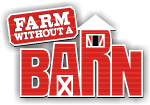SEA SOIL Frequently Asked Questions
Answers to Your Most Common Questions
Why does SEA SOIL not contain certain carbon sources (grass clippings, yard waste, green waste, land-clearing debris, wood waste or wood by-products, manure or sewer sludge) for composting?
Yard waste often contains the diseased plants and other substances such as pet waste that gardeners do not want to include in their own back yard composting bins. Grass clippings generally originate from lawns where fertilizers, pesticides and herbicides have been utilized. Ground-up random wood waste, wood by-products and land clearing debris can contain high amounts of cedar, weeds, de-watered wood or wood in contact with salt water, treated wood from fencing and painted buildings including carpets etc., old wooden pallets used to transport oil, paints etc., or any wood that has been utilized in the past by consumers or industry alike. These can and do contain heavy metals (mercury etc.), fertilizers, herbicides and pesticides that will remain in the soil. High amounts of wood (cellulose) in compost take a minimum of two years to even begin breaking down and will eventually rob your plants of valuable nitrogen to continue that process.Composting yard and wood wastes etc. is an excellent disposal method however many of these products should be utilized with caution. Heavy metals in fertilizers, herbicides and pesticides remain in the soil as they are not water soluble rather they are accumulative and will be absorbed especially by vegetables and fruit. For example, one popular manure composted soil available on the market contains .9pg/g of mercury while SEA SOIL contains only .04pg/g. Over time, these accumulations will add up. Always research your product and its ingredients to ensure its quality.SEA SOIL, in contrast, contains only two ingredients-fish and forest fines-which are proudly displayed on our bag.
 Page 1 of 1
Page 1 of 1 
Upcoming Events
There are no events to display.
Search FAQ
Growing Your Soil
Not the Landfill. All of our bags, pallets and pallet wrap can be recycled. Our plastic is made from no. 4 LDPE (Low-density polyethylene) plastic which can be recycled by returning clean, dry, empty plastic bags to recycling drop off centers or retailers and municipalities (curbside collection also) that provide designated plastic bag recycling. Wooden pallets can be reused or recycled at designated wood recycling areas with your municipality.
OMRI Tested
We believe that all soils should have a required minimum set of testing standards when it comes to growing. That is why we contacted O.M.R.I. years ago to start the process of approving SEA SOIL. We regularly test our SEA SOIL for heavy metals, ecoli and even fecal coliforms to make sure SEA SOIL is the best choice for gardeners and growers.



